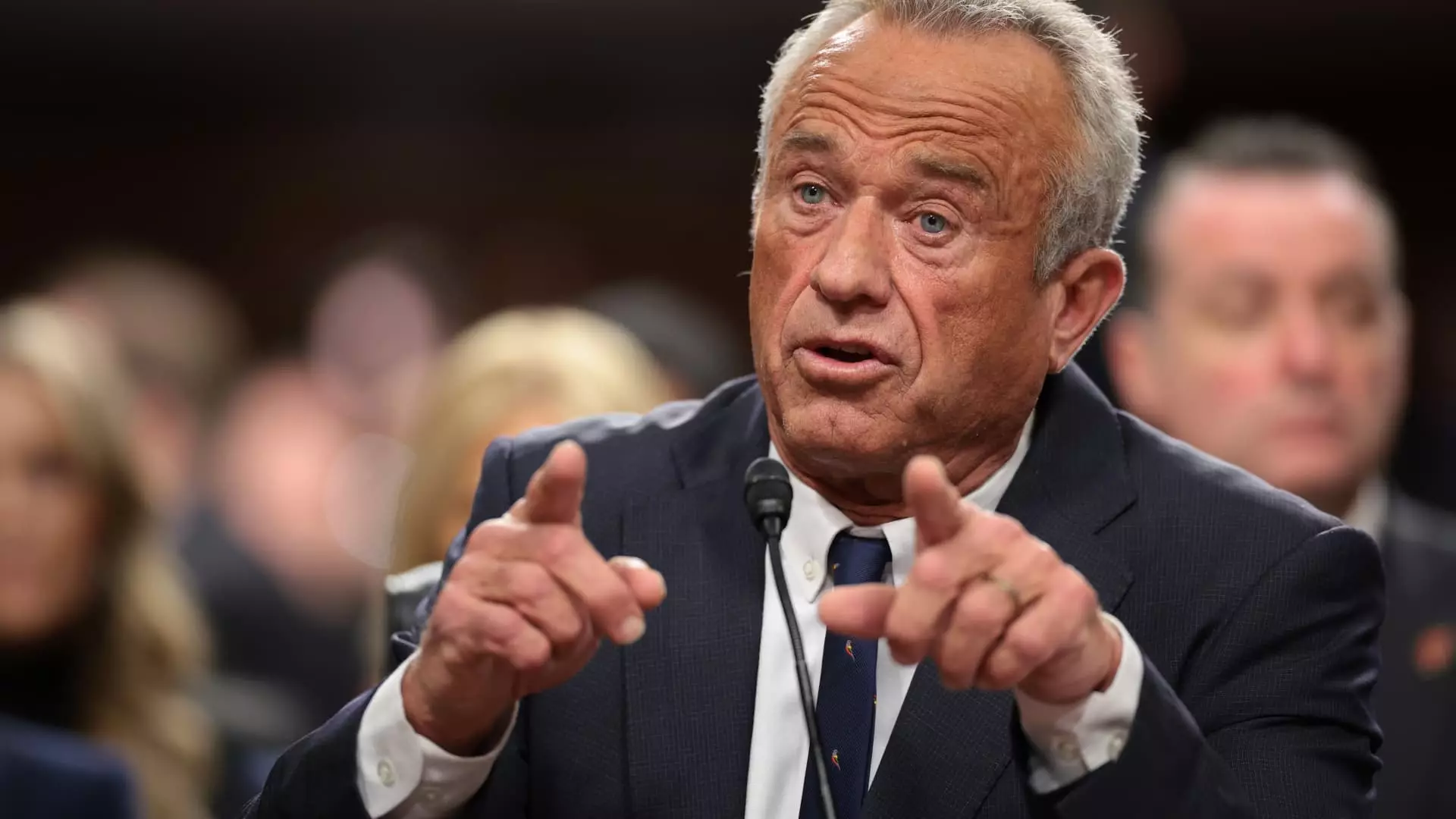We find ourselves at a precipice of a public health crisis, one that is intricately woven into the fabric of our daily lives—the food we consume. As we delve into the current administration’s aggressive stance on ensuring food safety, one cannot help but feel a mix of urgency and skepticism. Health and Human Services Secretary Robert F. Kennedy Jr. has made bold declarations to purge “the worst ingredients” from our food system. Yet, how effective can we expect these efforts to be when juxtaposed against the colossal interests of the food industry that show little concern for wholesome nutrition? The attention to artificial dyes is just the tip of a much larger iceberg, revealing a system that prioritizes profit over the health of its consumers.
The Pervasive Influence of Big Food
It’s not merely about removing certain food additives; it’s about confronting the inherent corruption that exists between big food corporations and federal health agencies. Kennedy’s remarks during a recent meeting with top executives from companies like PepsiCo and Kraft Heinz underline his commitment, but they also expose an uncomfortable truth: these food giants have long influenced policy, often in ways that ignore scientific consensus and public health implications. This “alliance” threatens to undermine Kennedy’s attempts to dismantle one of the most pervasive threats to American health—corporate greed masquerading as food science.
If Kennedy truly intends to combat the chronic disease epidemic that plagues both children and adults, he must recognize that the transformation of our food system is not just about regulations—it’s about challenging the very structures that endorse unhealthy practices. When powerful stakeholders are involved, genuine change is nearly impossible without considerable risk to those in power, something most bureaucracies are not willing to confront.
More than Just Artificial Dyes
Kennedy’s emphasis on removing artificial dyes from food may seem like a commendable first step, but it falls short of addressing the larger issues at play—namely, the balance of power within the food system. The recent revocation of Red No. 3 is a significant move, considering its known carcinogenic properties. Yet, this raises the question: why was it allowed to proliferate for so long? This contradiction mirrors the scrutiny faced by vaccines, another area where Kennedy’s ambivalence complicates public perception.
By recognizing the potential dangers of artificial additives, Kennedy inadvertently opens the door to broader discussions about holistic health that extend beyond individual ingredients. Focusing too narrowly on specific additives may lead us to sidestep the urgent need for comprehensive nutritional reform, one that addresses the systemic barriers preventing access to healthy foods for millions of Americans.
Vaccination: A Crumbling Trust
While appetites are increasingly whetted by the promise of a healthier food system, it’s crucial to discuss the intertwined destiny of food and health policies. As Secretary Kennedy explores changes to childhood vaccination policies amidst declining rates of immunization, skepticism rises. The very institution that is tasked with ensuring public health appears hesitant to uphold the measures that scientific consensus endorses.
As Kennedy contemplates the restructuring of expert committees involved in immunization oversight, it’s imperative to ask: would such steps encourage public trust or further dismantle it? As both the food and health sectors tumble into disarray, reliance on corporate interests can have irreversible consequences on public health. The leap from food safety to vaccine skepticism reflects an alarming trend in our societal discourse, one that emerges from the shadows of misinformation and fear.
A Vision for True Health Reform
Ultimately, the discourse surrounding food regulation and vaccination must confront not just the individual threats posed by certain ingredients or policies, but also the overarching mechanisms that perpetuate public health failures. Kennedy’s ideal of “Make America Healthy Again” can only be realized if we commit to deeper reforms that prioritize consumer health over corporate profits. This transformative approach is essential to tackle not just the symptoms of a failing food and health system, but also to dismantle the very frameworks that allow detrimental practices to persist.
The stakes have never been higher. With the nation’s health hanging in the balance, the urgency for reform is real. The question we must ask is whether we will rise to the occasion or allow complacency to continue its stranglehold on our collective health—and ultimately, our future.



Leave a Reply